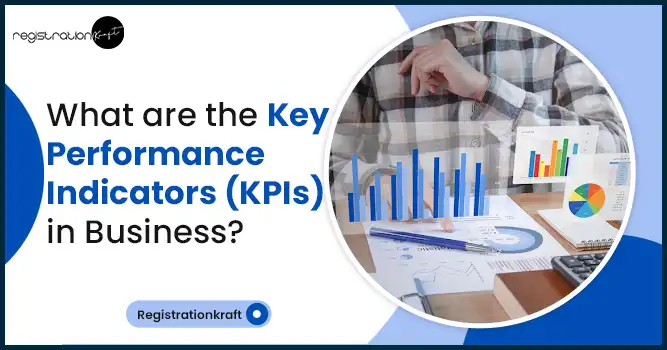In the business sector, all the employees understand that the company is responsible for resource management to achieve optimal results. Key performance indicator or KPI for business is one of the most important tools used by the management to monitor performance.
In this article, we will discuss the Key Performance Indicators (KPIs) in business.
What is a KPI?
KPI’s full form is Key Performance Indicator. It is a quantifiable metric used by the companies to evaluate their performance against their strategic objectives. KPI metrics offer goals for teams to strive towards, benchmarks to assess advancement and helpful insights to assist people across the companies to make better decisions. Key performance indicators help every area of business to move forward at a strategic level, from finance and HR to marketing and sales.
Key Performance Indicators are essential for businesses belonging to various industries. Key performance indicators in manufacturing industry give manufacturers valuable business insights, so that they can meet their organizational goals. Key performance indicators in retail industry give retailers insights that can help them to influence the cost of doing business, customers’ buying habits and so on.
Why is KPI important?
KPIs are necessary to ensure that your teams are supporting the business’s overall goals. Here are the top reasons why KPI is important:
- KPIs Maintain Team Alignment: With the help of KPIs, the teams stay on the same page when evaluating employee performance or project success.
- KPIs provide your firm a health check: Key performance indicators which include risk factors and financial indicators provide the company a true picture of how well their business is performing.
- Clear Picture of the Company’s achievements and failures: KPIs give the company a clear picture of its accomplishments and shortcomings, and enables it to focus on what is successful and less on what is not.
- Hold your team responsible: KPIs ensure that everyone provides value to the company. These tools enable the employees to track their progress. If the employees under a certain team aren’t performing well, they will be held accountable.
What are the types of KPIs?
KPIs have a wide range of useful applications across various business areas, from daily indicators providing real-time management information to more long-term organizational goals.
KPIs generally belong to one of the two categories namely, Operational KPIs and Strategic KPIs:
Operational KPIs
Operational KPIs are a useful tool for providing precise, timely and well-articulated information which is required for making daily business decisions or addressing performance or processing issues.
The operational KPIs use formulas with data from several sources and can be straightforward or extremely complex.
Here are some examples of Operational KPIs:
- Accounts Receivables Turnover: This KPI measures a company’s efficiency when it comes to collecting its account receivables.
- Operating Cash Flow: This KPI reflects the money made from a company’s day-to-day operations.
- Days Sales Outstanding (DSO): This KPI measures the average number of days taken by a company to collect payment after a sale has been made.
Strategic KPIs
The Strategic KPIs focus on long-term objectives derived from a company’s goals. The management of a company can identify if a strategy is working or if it is on target with the help of Strategic KPIs. The Strategic KPIs are also referred to as High-Level KPIs.
Here are some examples of Strategic KPIs:
- Defect Rate: It is a KPI in the manufacturing industry that measures the percentage of products produced that fail to meet the quality standards and requirements.
- Production Lead Time: This KPI focuses on streamlining the time taken for moving a product from raw material acquisition to finished goods delivery.
- Overall equipment effectiveness (OEE): It is a KPI metric that helps to identify the percentage of planned production time that is genuinely productive. It takes in consideration the performance (speed), quality (defects), and availability (uptime) of the production.
Must Read: Why does Calculating Return on Investment (ROI) Important for Businesses?
How to make your KPI Strategy stronger?
If you feel that your KPIs aren’t delivering the results you desire, it is time for you to make adjustments in your strategy. Here are a few things you can do to make sure that the individuals across your company know what your KPIs mean, and how they can be used to make data-decisions for your business.
Choose the most appropriate KPIs for your business
You should include a balance of leading and lagging indicators to ensure that you are measuring the right things. Understanding results over a period of time can be made easier with lagging indicators. These indicators can help you to understand the result of sales over the last quarter.
Form a culture that is KPI-driven
If the people in your organization aren’t aware of KPIs and don’t know how to utilize them, KPIs will lose their significance. You must promote data literacy throughout your organization to ensure that all the employees are working towards strategic goals. To make sure that everyone is making decisions that can advance your company, you must train the staff and assign them relevant KPIs and make use of a top-tier Business Intelligence (BI) platform.
Update your KPIs due to market changes
You must update your Key Performance Indicators in response to the changes in the market, your clientele, and inside your organization to stay up-to-date. To ensure that the teams are always informed about the changes, you must review and announce these changes at frequent meetings.
Conclusion
Key Performance Indicators (KPIs) measure the extent to which your organization will reach its goals and provide additional guidance and extra motivation for the team members. KPIs also make it simpler for the upper management to assess the team’s influence. If you liked reading this article, make sure to check out the rest of our blog posts!
Frequently Asked Questions (FAQs)
Q1. What does KPI mean?
KPI is short for Key Performance Indicator. KPIs are targets that help the organizations to measure progress against their most strategic objectives. While organizations can have many kinds of metrics, KPIs are targets that are the “key” to a business’s success.
Q2. What are the different types of KPIs?
KPIs can either be Strategic KPIs or Operational KPIs, and are applicable to specific business units.

